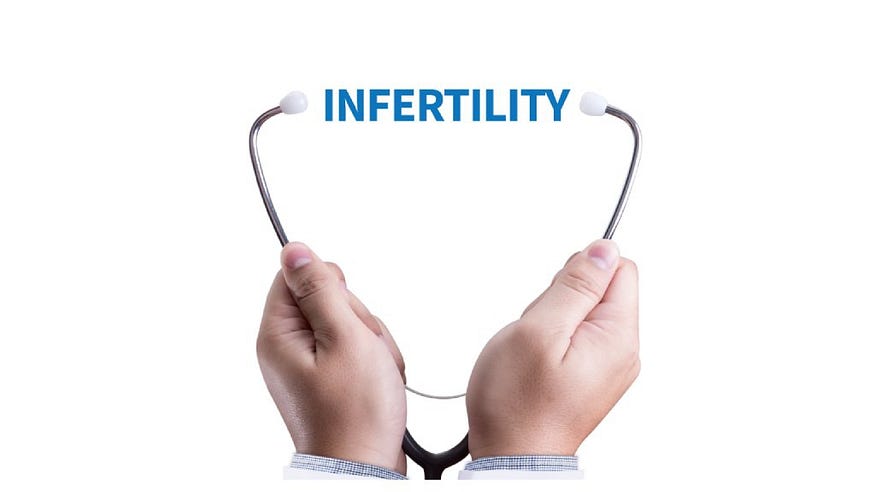INFERTILITY — Cicle Health
Infertility is not getting pregnant, despite having carefully timed unprotected sex for at least one year. Infertility may also refer to a person having issues staying pregnant i.e., miscarriages or stillbirths. It is estimated that 1 in 10 women between the ages of 15 and 44 have trouble conceiving. Research has shown that in about one-third of couples that struggle with infertility, the issue is with the woman. Another third man is the one responsible for infertility. In the last third, the reason for infertility is unknown. Yes, you read right. Infertility can come from either the male or female or even both. The causes of infertility depend on who is infertile.
to speak with a gynecologist
CAUSES OF INFERTILITY IN FEMALES.
For a woman to conceive, an egg must be released from one of the ovaries. After it is released, a sperm must join the egg so as to fertilize it. The eggs then travel to the uterus. When it does, the embryo (fertilized egg) attaches itself to the uterine wall. During the process of the egg being released, a lot of factors can prevent it from being fertilized, or not released at all. Here are some of the factors
Age: The number of eggs produced decreases with age. s conceiving their first child. In couples with a woman under age 30, about 13% report problems with conception.
Menopause: Menopause usually occurs around age 50-earlier for some, and symptoms include irregular or absent periods. As a woman grows older there is a decline in ovarian functions. Ovulation might not occur as frequently as it did before.
Blocked fallopian tubes: if the tubes are blocked, then there is no way for the fertilized egg to attach itself to the uterine wall.
Weight changes: A woman is more likely to experience infertility if she is overweight, underweight, or obese.
CAUSES OF INFERTILITY IN MEN
For you to father a child, you must be able to have an erection and ejaculate, and also produce healthy sperms that can fertilize the eggs. The problem is, any of this can cause infertility. Here are some of the factors
Problem with the sperm: Problems with making healthy sperm are the most common causes of male infertility. Weak sperm, low sperm counts, zero production of sperm.
Age: Age is a defining factor in fertility.
Injury: Damaged testes cause infertility
Types of infertility
Primary infertility refers to couples who have not become pregnant after at least 1 year of having sex without using birth control methods.
Secondary infertility refers to couples who have been able to get pregnant at least once, but now are unable.
After knowing the two types of infertility, it is also necessary to know that infertility may be due to faults in both men and women.
Infertility risk
These factors increase the risk of infertility in both men and women:
- Age (more than 35 years for women or more than 40 years for men).
- Diabetes.
- Eating disorders like Anorexia Nervosa and Bulimia
- Excessive intake of alcohol
- Block Fallopian Tube
- Celiac disease
- Kidney disease
- Past ectopic pregnancy
- Pelvic Inflammatory Disease
- PCOS
Diagnosis
If you are trying to get pregnant and it is proving difficult, you should contact our doctor immediately. The doctor will test you and try to find out the reason for your infertility. The doctor can record the signals of ovulation such as basal body temperature. A home ovulation kit can also be used.
Pelvic Exam: -
A pelvic examination includes pap smear to investigate the structural problems.
Blood Test: -
A blood Test is used to investigate the hormone levels including the thyroid hormones.
ultrasound: -
To check if there are problems with the reproductive system
Infertility prevention
There are steps you can take to prevent infertility. Steps like:
- Take a balanced diet and maintain a healthy weight.
- Avoid smoking
- Treat Infections fast
- Limit the use of toxic substances.
- Be physically active.
When do you go to the doctor's?
If you are:
- 35 years old or more
- If you’ve been trying to conceive or more than a year
- Irregular or absent periods.
- There are very painful periods.
- You have a fertility problem.
Infertility treatment
The treatment of female infertility can include surgery, and drug, and reproductive assistance. Many treatments significantly improve the chances of getting pregnant. They include hormone treatments, fertility drugs, and surgery. In addition, assisted reproduction uses various medical techniques to fertilize an egg.
Why choose Cicle ?
We at Cicle can help you with infertility issues. All you have to do is contact our health coach and an appointment with a doctor will be made. To book an appointment with a doctor,
Our goal Is to provide the best medical services to our patients.
today to book an Appointment.
For More Details — URL — https://www.cicle.health/
https://www.cicle.health/blog/fertility/infertility
Email — support@sheresolved.com
Contact US — +91 7043290777


Comments
Post a Comment